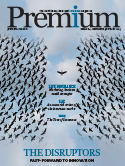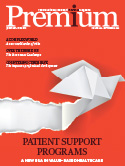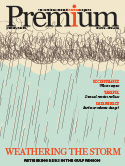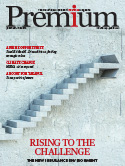Improving trends, challenges remain

AM Best recently held an insurance market briefing recently in Dubai, where the key trends impacting the region’s insurance industry, reinsurance sector, consolidation within the market and the regulatory environment were discussed.
Speaking about key trends, Alex Rafferty, associate director, Analytics, AM Best, said that despite headwinds such as persisting COVID-19-driven uncertainty, there was some signs of an economic recovery. He added that insurers were well capitalised and resilient, albeit still susceptible to liquidity pressures and potential for delays in payments. While AM Best has observed an increased focus on credit control in an improved regulatory environment, he said it was still a key risk.
Observing the correlation between oil prices and economic activity, he said that over 80 percent of rated insurers had maintained their risk-adjusted capitalisation despite the impact of the pandemic. He added that asset risk was far more than the developed markets in this region owing to the emphasis on equity and real estate. He also said that there was a downward trend for the UAE, the Kingdom of Saudi Arabia (KSA) and Qatar in terms of average debtor days, attributing this to better credit control and improved accounting systems.
However, the general perception of the regional markets, especially the UAE, of persisting competition, normalising claims which reduced underwriting profitability and increased loss activity was still present.
Giving a short presentation on regulation and M&A activity in the region, Vasilis Katsipis, general manager – MENA, South & Central Asia at AM Best, spoke about the congestion in market, attributing it to the way companies operate. He opined that the expense ratio of 25 percent was too high for the UAE insurance companies which could not be explained by economies of scale. He also observed that many companies in the UAE market operated below the minimum paid-up capital. “Most companies have been operating with shareholder equity lower than the minimum paid-up capital,” he said. To conclude, he said robust governance were essential, especially in cases where there were one or few owners for the company, following all the regulations than just a few new ones.





































